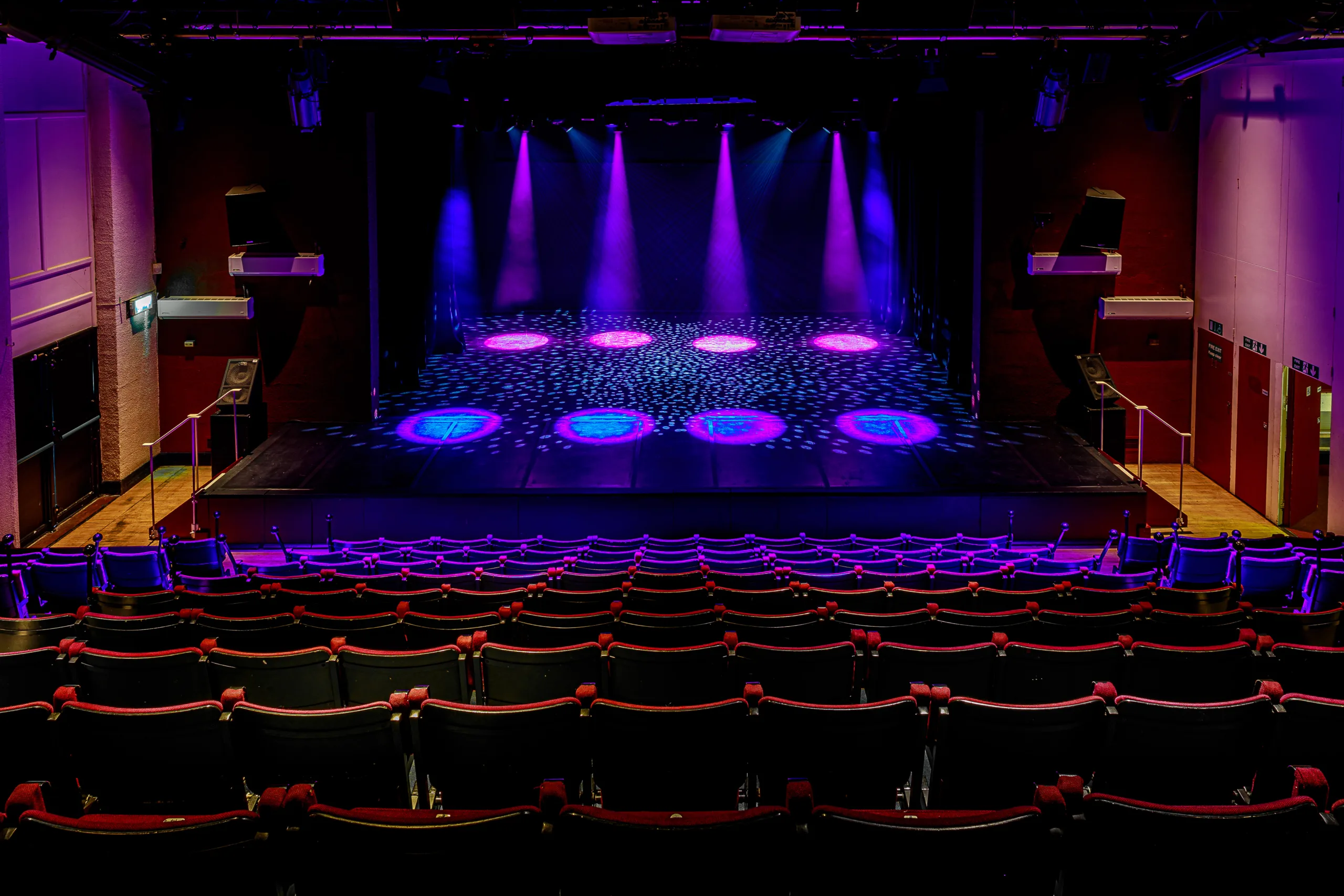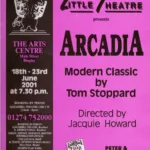Season 53 Play 8 – Arcadia by Tom Stoppard
Directed by
Cast
SEPTIMUS HODGE – Brad Moxon
JELLABY – Peter Berry
EZRA CHATER – Bruce Sturrock
RICHARD NOAKES – lan Wilkinson
LADY CROOM – Jan Thomas
CAPTAIN BRICE RN – Tim Lobley
AUGUSTUS COVERLY – Timothy Steere
Synopsis
In 1809 Sidley Park is home to Lord and Lady Croom, their offspring, a number of houseguests and a variety of employees. Life is pleasant and mainly uneventful, although there are sexual undercurrents to a number of the relationships. In 1989 members of the same family still live in the house and are entertaining a number of literary academics intent on discovering evidence to support their publications on obscure subjects allied to Sidley Park, and they begin to speculate on happenings that occurred 180 years earlier in that self same room.
Directors Notes
“Et in Arcadia ego”’ “Even in Arcadia there am I” A tomb inscription of disputed meaning, often depicted in classical paintings. In 1809 Sidley park in Derbyshire, the orderly classicism of the Capability Brown grounds is about to be transformed to the fashionable picturesque Gothic style by landscape architect “Culpability” Noakes. In a Regency room overlooking the work is Lady Croom’s brilliant adolescent daughter, Thomasina Coverly, with her handsome, clever tutor, Septimus Hodge. Their maths lesson is interrupted by the imperious, amorous Lady Croom and Ezra Chater, a minor poet, determined on a duel as satisfaction for the seduction of his wife. 180 years later, in the same room, garden historian Hannah Jarvis, Byron scholar Bernard Nightingale and mathematician Valentine Coverly try to unravel the events of 1809. Who seduced Mrs. Chater? Was a mathematical breakthrough made and then lost until the present day? Who was the hermit in the Gothic ruin? Did Lord Byron fire the fatal shot? This absorbing play takes us back and forth between the centuries, showing the events of the past which the investigators of the present interpret with spectacularly wrong and amusing results. Stoppard wittily and entertainingly investigates the nature of truth and time, Romantic emotion and Classical intellect,
and the disruptive impact of love and sex on attempts to manage life by rational thought.


